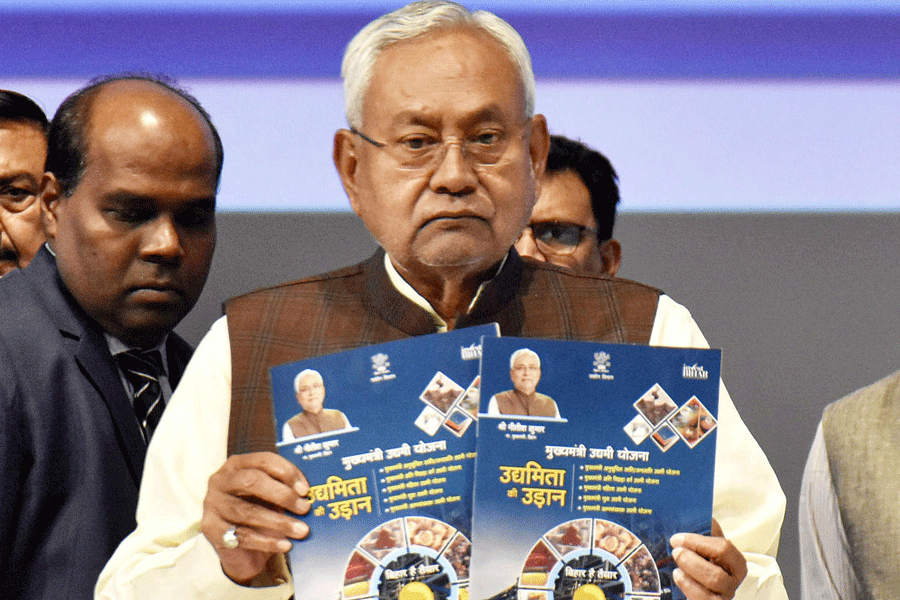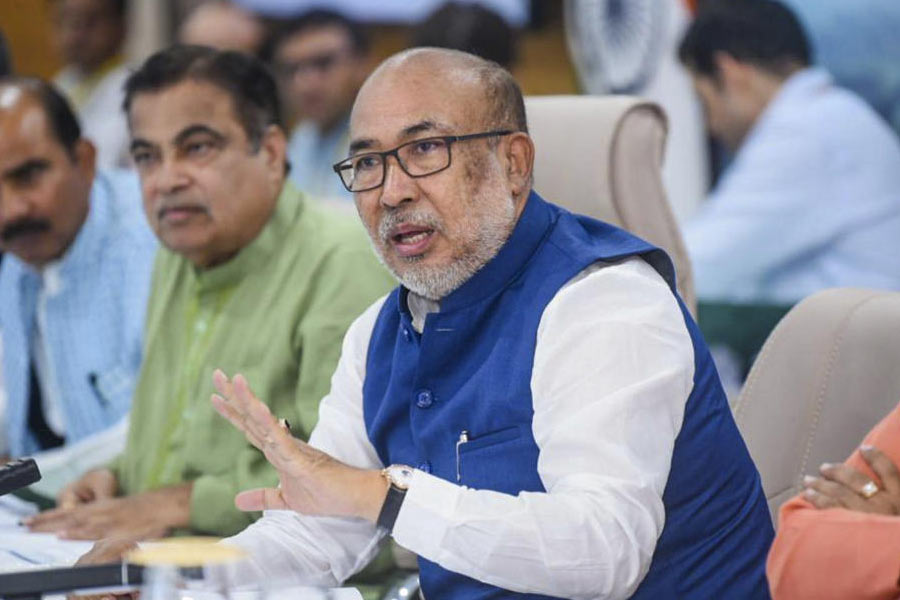The Bihar government has banned the use of swords, spears, firearms, sticks and other weapons, as well as high-decibel public address systems and mikes, in religious processions to prevent communal tension.
The Nitish Kumar government on Thursday issued an order to all district magistrates and superintendents of police, communicating the decision.
“There have been instances in which high-decibel slogans blared from microphones or loudspeakers and demonstrating with weapons during religious processions at the time of festivals have led to communal tension and serious law-and-order situation,” special secretary (home department) and IPS officer K.S. Anupam said in the letter.
Such decisions are often tough to implement and require political will to take them beyond optics.
Bihar had witnessed several communal flare-ups earlier this year.
The letter said that carrying weapons during religious processions was banned under the Arms Act except for special circumstances such as Sikh religious ceremonies, during which kirpans (knives with curved blades) are permitted.
“If carrying a sword or any other weapon is necessary due to some particular reason in a religious procession, the person bearing it will have to take permission from the administration,” the letter said.
“Besides, an undertaking from 10 to 25 people – along with their names, addresses and Aadhaar numbers – that they will uphold the law-and-order situation will be taken while allowing every religious procession.”
Any permission for religious processions will include the condition that mikes and public address systems will be used only to control the crowds and that their decibel levels will not under any circumstances go above the permissible limit for that particular area.
The decibel levels will be checked with the help of mobile apps available in the public domain.
“We will go by the Supreme Court guidelines on decibel levels for various areas like schools, hospitals, places of worship and others,” Anupam told The Telegraph.
“Our intention is to allow religious processions without any disturbance to other people and without any spread of hatred.”
Anupam said the state police’s anti-terrorist squad had been seeking such an order for some time.
The administration will ensure that photographs and videos of religious processions are recorded and stored for at least three months, so that they can be used to identify and book violators.










